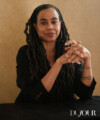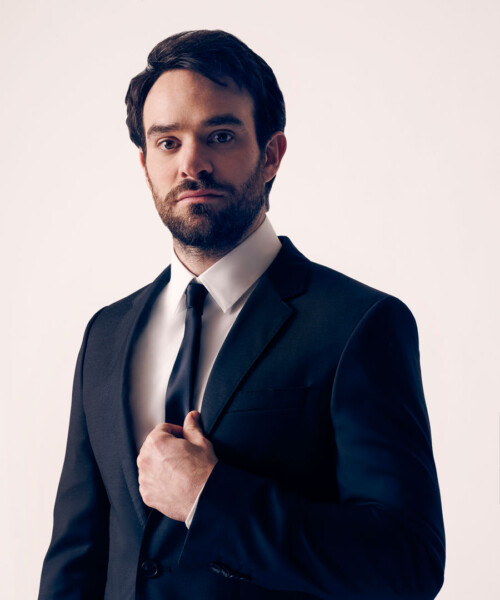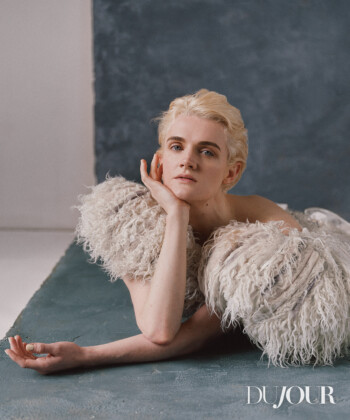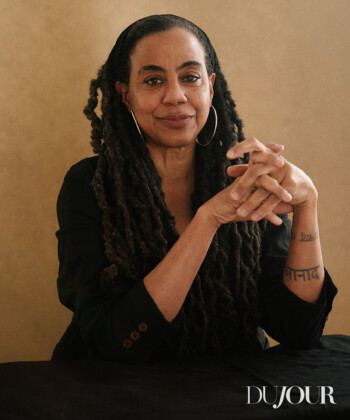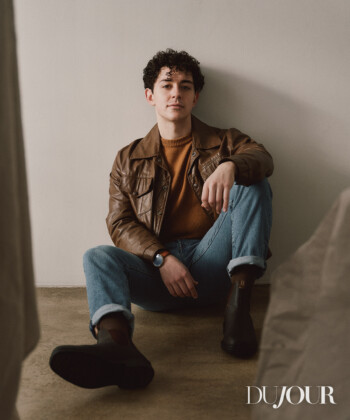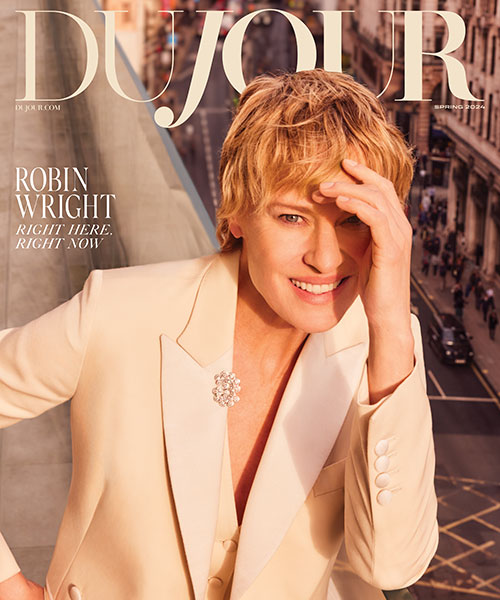In 2015, playwright Nick Payne’s Constellations opened on Broadway, telling the story of the relationship—or, really, the seemingly endless possibilities of what could have happened—between a young man and a young woman. The show, which garnered a Tony Award nomination for star Ruth Wilson, featured blink-and-you’ll-miss-them micro scenes that spelled out all the possible iterations of the pair’s interaction, and made a name stateside for Payne, who’s already something of a resident rising star at home in the U.K.
Now, the playwright’s latest work, Incognito, is on the New York stage (Off Broadway at MTC at New York City Center) and using a similar pacing to tell a series of stories that have to do with the workings of the human brain—from the malfunctioning mind of a man who’s lost his memory to the famous grey matter of a world-renowned scientist. Charlie Cox (TV’s Daredevil, The Theory of Everything) stars in the show, deftly playing a number of roles and giving even the shortest of scenes an impressive impact. Here, he tells DuJour what brought him to the New York stage, and how his own imperfect memory can affect his work.
The last thing I’d seen you in was the latest season of Daredevil, and here you are doing an Off-Broadway show. How did that happen?
I had been actively looking for a play to do in New York, because it’s been a dream of mine to work on the stage out here, and this is the first thing that I read, and I was so blown away by it. It felt like it was exactly what I was looking for in some ways.
Is it everything you’d anticipated?
I’m having a great time when I can remind myself to enjoy it, you know. It’s been a while since I’ve been on the stage so those early nerves have taken a while to settle, but I’m having a really good time.
You play a number of characters over the course of the show. Was that difficult to tackle?
Just by the nature of the play, there are a lot of moments where one could quite easily get tripped up. Whereas in other plays that I’ve done, the story is more linear—having one character to play and one accent to do, and having furniture, sets, and costumes—and there are less moments where you could get tripped up. With this play, there are no pointers.
There’s so much trust necessary for you and the other actors on stage to make this work. Did you have to do any kind of bonding exercises to make it all work?
The answer is no, but I actually think that rehearsals done the right way are exactly that. It’s a small cast, and there’s only seven of us in the room during rehearsals, including Doug the director and Nick Payne, and I think when rehearsals are dealt with in a certain way, the trust and necessary relationships are built organically.
Considering you’ve got a number of different characters to inhabit, was there any one that was the most challenging?
One of the characters I play, Greg the Australian—I wanted to make sure that he didn’t become a caricature. In some ways he is, he only exists within one scene and he’s kind of a misogynist and a stereotypical macho male who invades other people’s space, but I also wanted to make sure that there was a little more to him than that, so that’s been a challenge for me. And plus, Australian accents are always interesting to do.
What was the easiest?
I think Henry, actually. When I read the play and knew that I was going to audition for this particular part, these parts, obviously I knew that the main character I would be playing would be Henry and he was just someone that I feel like I understood. I knew there was going to be a challenge in terms of the aging and the emotional frustration that he goes through in the later phases of his life, but in terms of his attitude and the kind of person he is outside of the operation, that character seemed very clear to me. So the thing that was a challenge was, of course, how to deal with these moments when he “resets” as we referred to it in rehearsals. When he, in mid conversation, suddenly doesn’t know who he’s talking to. That was exciting to me but also a challenge.
Does doing this show make you think about memory more? Are you doing your brainteasers to keep the mind fit?
It’s sort of made me feel like [what happens is] so out of your control, you know what I mean? One of a stage actor’s worst fears is that he’ll step out on stage and there will be nothing there. Often we’ll be running lines before a show, and a line just isn’t there; it happens in performances, it happens in every show I’ve ever done, and 99 percent of the time you’re able to maneuver around it and nobody notices. But every now and again, the line you’ve said a hundred times before without any problem is just not there, and you rely either on the other actor to cover for you, and that feeling of unease is quite disconcerting. So for someone like me who’s returning to the stage after six years, and then rehearsing this play and talking about the brain and talking about memory, it kind of added to my fears of everything.
I can see the headline now: “Actor in Show About Memory Forgets Lines!”
That is the nightmare, isn’t it?
Is there anything in particular you do to help memorize lines?
I’m a very good memorizer, I memorize lines very quickly. For some reason I can just read a page of dialogue and know it almost immediately—and that’s very lucky. Of course with a play, you need to make sure that you know it in greater detail. I’m a big believer in going over your lines the night before, so the last thing I do before going to bed is go through the whole play, I go through my lines. Also, I like to walk around outside saying my lines just to get it into my body that way. But other than that, it’s just about you open your mouth and it’ll come out—hopefully.





